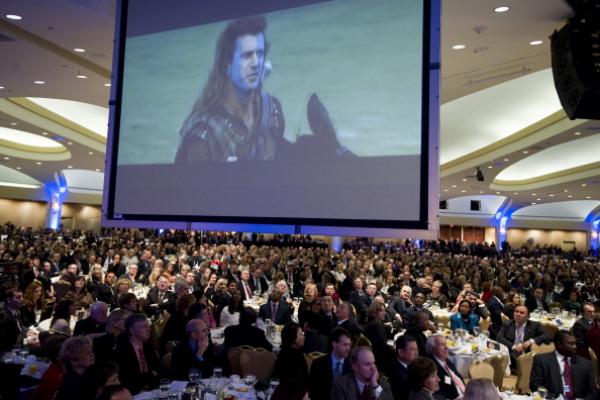What does it mean to be a Christian when organizations such as The Family create a Jesus that does not hear the prayers of the poor? An organization that prays to the powerful in place of God? That participates in the global crucifixion of the poor by turning Jesus' cross into a social ladder for politicians to climb upwards, past the broken body of Christ? To cultivate relationships with dictators?
To cultivate the most powerful for political influence, to create an elite society for the elite, is that listening to the prayers of the people?
I ask you, was Jesus a political networker? Did he hobnob with the most powerful? Did he cultivate relationships with the dictators of his time, Herod and Pilate?
Our political class does not hear the prayers of the poor, they hear the "prayers" of corporate lobbyists who fund their campaigns. And they hear the prayers of Christians such as Doug Coe and The Family at the National Prayer Breakfast, because they offer connections, votes, and money.
Read the Full Article

